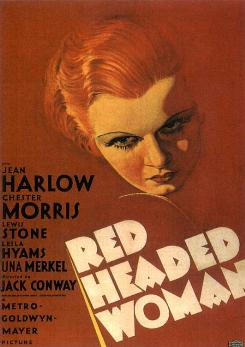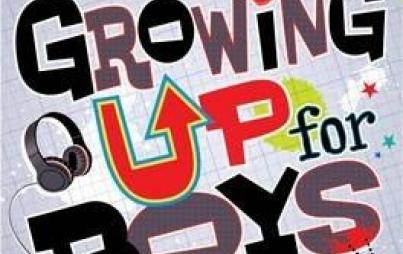
Credit: Thinkstock
Yesterday, in case you missed it, was a holiday. Not a sanctioned national holiday, mind you, but a holiday that nonetheless captivated the world, prompting countless tweets, Facebook posts, and cheeky articles.
I am speaking, of course, of Kiss a Ginger Day. Perhaps better known by its trending hashtag #KissAGinger, the day is precisely what it sounds like: an opportunity for non-redheads to celebrate and pucker up to all those sporting lustrous crimson locks. I'll admit it. In theory, it's an undeniably fun—if a bit odd—idea. But touting it as a day that actually celebrates the redheads it feigns to care about? Not so fast, ginger-heads. History tells us otherwise.
Enter South Park
Kiss a Ginger Day has its roots in, of all things, that bastion for controversy, South Park. In 2008, the satirical show aired an episode titled "Ginger Kids," which used a war between redheads and non-redheads as a dark, absurdist analogy for the ethnic cleansing of the Holocaust. Clearly not understanding the very message of the show, some viewers launched a "Kick a Ginger Day" campaign on Facebook in 2008, which in turn prompted actual violence. In one high-profile incident in 2013, for example, six redheaded students in Yorkshire, England, were attacked on their way to class on account of the "holiday." Seriously.
In an effort to provide a "karmic counter-event" to the hate-fueled campaign, comedian Derek Forgie launched "Kiss a Ginger Day" in 2009. And so another social media phenom was born.
In many ways, this ginger-headed holiday deserves some kudos. It's without a doubt a more positive alternative to the ridiculous—and occasionally violent!—Kick a Ginger Day, and can even be viewed as a necessary antidote to all discrimination against redheads, a form of hate known as "gingerism." Seriously.
But . . . is a day devoted to kissing redheads really the answer? Or does it, as I would argue, only serve to perpetuate another form of discrimination against redheads—namely, a nine-syllable phrase we like to call sexual objectification.
Redheads As Sex Objects
To "celebrate" the special day yesterday, many news sites, from The Daily Mirror to Colorado's 9News to Instinct Magazine, crafted wink-wink lists of the sexiest celebrity gingers.
Even advertisers got on board. In a #failed effort to seem hip on social media, sandwich chain Jimmy John's tweeted flirtatiously with the carrot-haired Wendy's mascot—aka, an adolescent girl. (I will cop, though, to chuckling at the Cheeto's Chester Cheetah tweeting "Ladies, you know where to find me.")
All of this seems perfectly harmless, until you consider how undeniably creepy it is—constituting, essentially, the sanction of sexual harassment in a public forum under the auspices of admiration. One red-haired Bustle writer tried to make light of these icky undertones:
"Please don’t get all weird and, like, actually try to forcibly kiss redheaded strangers . . . which, now that I think about it, is probably going to happen to at least one poor, unsuspecting soul."
In Vice, an Irish redheaded writer noted that Kiss a Ginger Day is really just an excuse to sexually assault redheads instead of physically attack them. Or, as she shrewdly put it, it's an "excuse for perverts to be perverts." 
These undertones are particularly troubling when you consider the long and storied history of said sexual perversion aimed at redheads, and in particular redheaded women. The myth of the hyper-sexualized redhead rears its head just about everywhere, from the Bible to pop culture: Adam's first wife—Lilith—became a promiscuous wanderer after demanding sexual equality with her husband, while Jessica Rabbit—the impossibly-shaped sex icon—battles her harlot reputation the entire length of the film.
In literature, too, the red-haired vixen vamps on, sexually carnivorous: In Gulliver's Travels, Jonathan Swift wrote:
"It is observed that the red-haired of both sexes are more libidinous and mischievous than the rest, whom yet they much exceed in strength and activity."
The film and book Redheaded Woman portray a titular protagonist who's a sexually aggressive homewrecker. And don't even get us started on porn about redheads, or that oft-repeated question about drapes matching the carpet. (Interestingly enough—dare we utter it—one study from a few years ago revealed redheads may actually have more active sexual lives . . . a fact that, scientifically founded or not, has only served to further the objectification and stereotyping.)
Considering all this, it's hard to get behind a day dedicated explicitly to sexualizing redheads, giving carte blanche—including, of course, a hashtag—to all those who'd like to kiss, or fantasize about kissing, the ginger of their wet dreams.
Respect a Ginger Day 2016, anyone?






